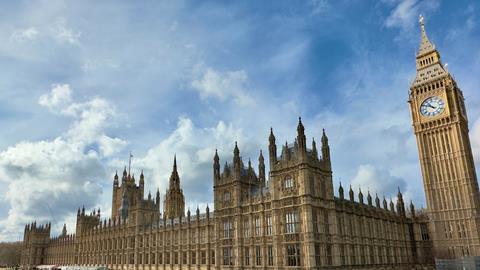As the new government beds in, hauliers are warning ministers that the sector will struggle to meet the UK’s 2040 ban on the sale of new diesel trucks without more government support to help meet the cost of decarbonising fleets.
Dave Hands, MD of LTS Global Solutions, said while his company has received some support from manufacturers in meeting the additional cost of the electric vehicles he has introduced into the company’s fleet this needs to be bolstered by greater support from government.
He warned: ”If the new government is not able to provide the support, I don’t think people are going to meet the deadline.
“What we need is more advice and financial support to cover the extra cost of the vehicles and the insurance, as well as support with installing the charging infrastructure, so we can start this journey sooner.”
He believes that if government wants to meet its targets on cutting emissions it may also have to add the use of alternative fuels such as HVO to the equation.
“If the support is not there then the only way we are going to do this is through other alternative fuels. It won’t just be electric. There’ll have to be other fuels in the mix.”
Marcus Fischer, Armstrong Logistics MD, echoed Hands’ concerns, arguing that while hauliers clearly recognise the need to decarbonise transport, they need greater engagement with government to help them overcome the financial barriers to decarbonising their fleets.
He added: “The increased financial impact of a more sustainable fleet - be that electric or other - just cannot be passed on to the customer to absorb.
“Our new government transport minister needs to embrace the need to come to the table with leaders in our sector to discuss a viable package of financial support to enable the sector to meet the government’s sustainability aims - aims that are shared within our sector.”
Alex Knowles, MD at Knowles Transport, said the new government could make significant strides in cutting emissions ahead of the 2040 deadline by promoting HVO as an alternative to diesel, backed by a “significantly reduced fuel duty to make this financially viable.”
Knowles also wants to see government grants to support the additional cost of buying LNG and CNG trucks via grants as well as subsidies to support bio-LNG and bio-CNG production in the UK.
Turning to the challenges of installing charging infrastructure at hauliers’ depots he called for “proper grants for installing electric chargers and upgrading operators’ electric supply on their premises”.
Knowles would also like to see government backing for a dedicated HGV public charging infrastructure for electric trucks, to make mid- and long-haul viable, as well as a dedicated HGV public hydrogen refuelling infrastructure.
Looking to future developments, he said hydrogen fuel cell technology has yet to prove its commercial viability.
He added: “However, at present it would seem, given its proposed range of up to a 1,000km and heavy haulage capability, that it will be a major part of the mix for operators. I foresee operators running both electric and hydrogen fuel cell for different applications.”
Andy Salter, Freight Carbon Zero MD, believes the new government’s starting point has to be a clear and coherent strategy on fleet decarbonisation.
He explained: “The decarbonisation of this sector isn’t just a simple matter of electrifying the truck fleet and requires a clarity and consistency of approach that takes into account the multiple industry use cases.
In an appeal to the new government, he said: “Please don’t treat trucks like big cars when it comes to end of sale date regulations.
“Take the opportunity to rethink the regulation needed to decarbonise the truck fleet and support the industry through the transition.”

















